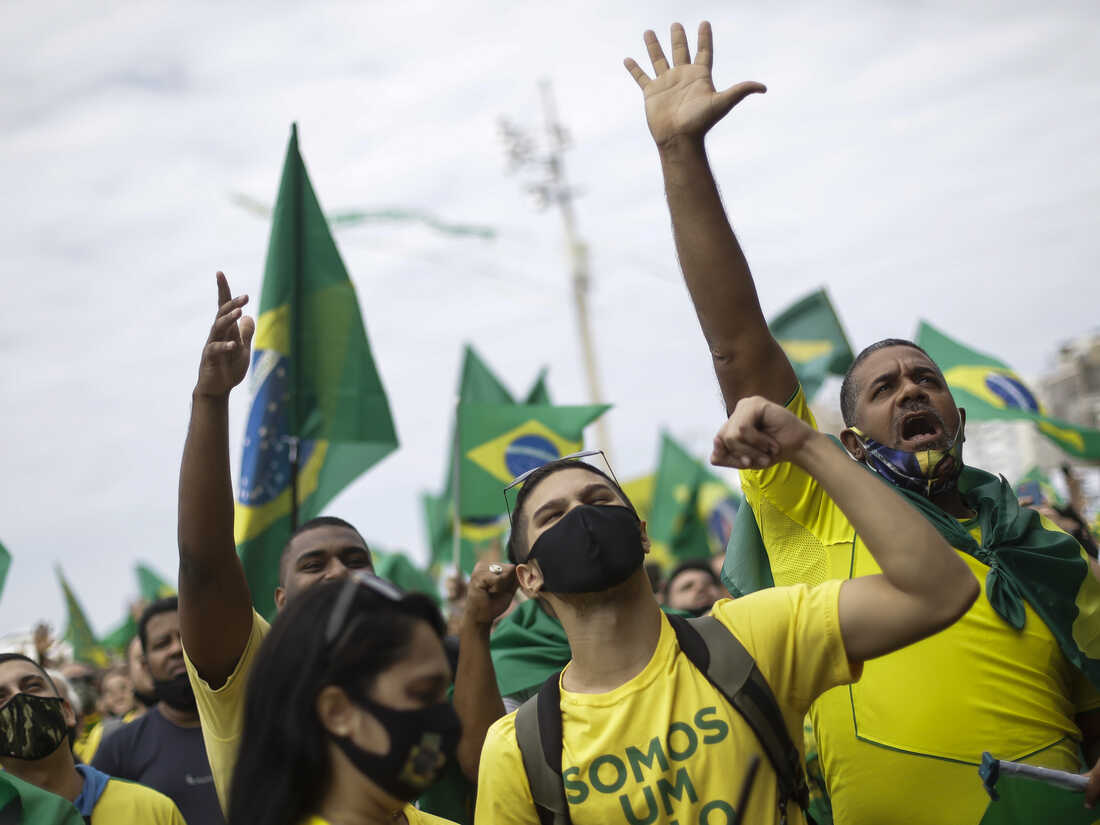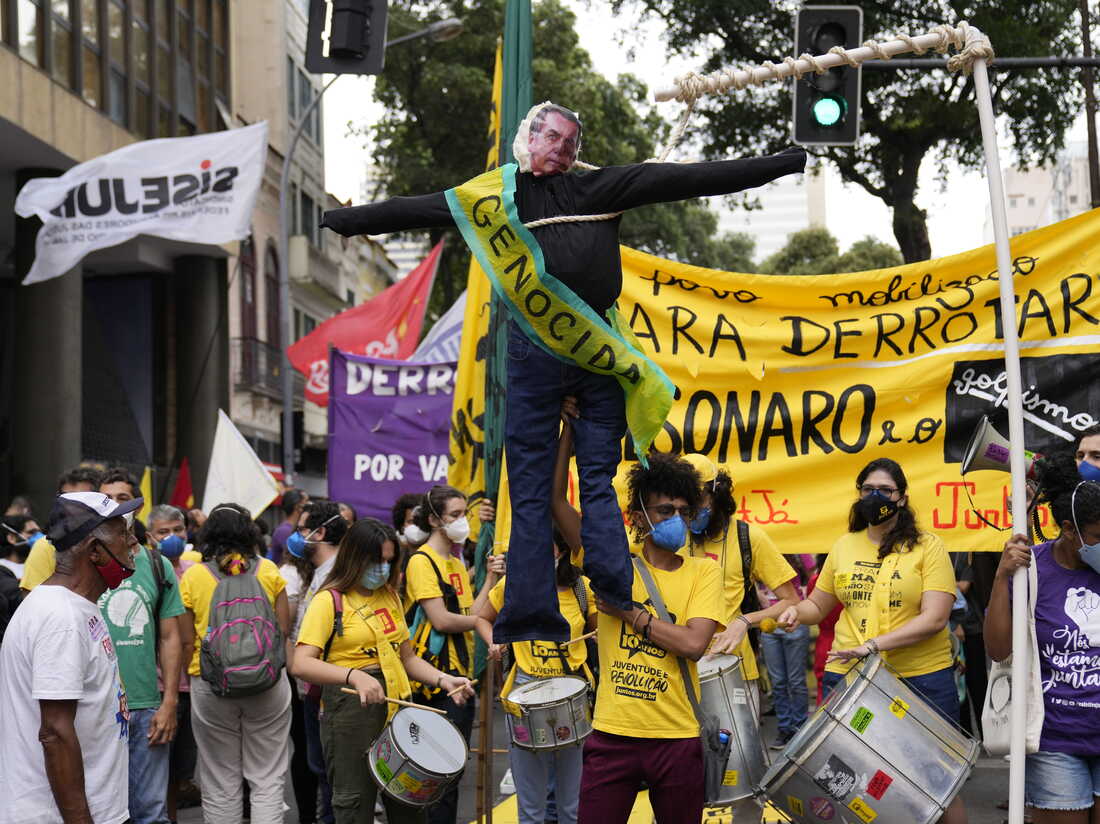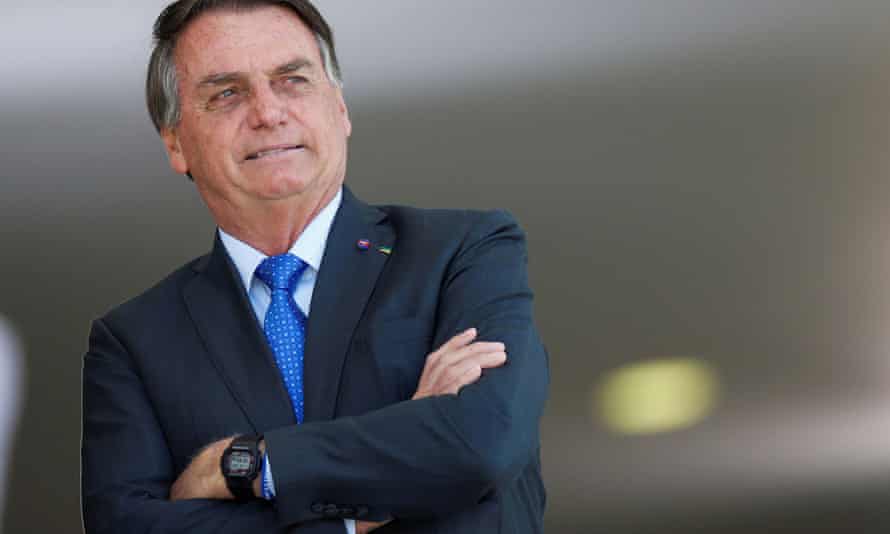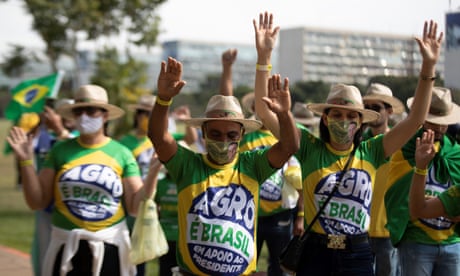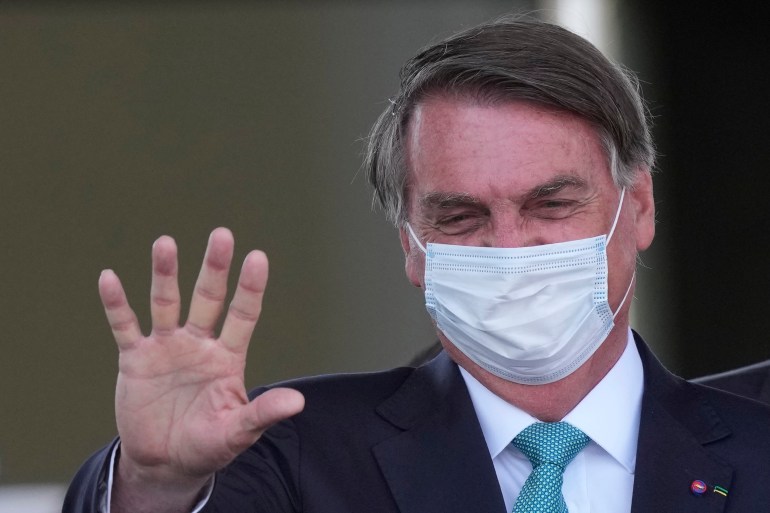UPDATED
Taliban fire in air to disperse protesters, arrest reportersBy KATHY GANNON
Afghans shout slogans during an anti-Pakistan demonstration, near the Pakistan embassy in Kabul, Afghanistan, Tuesday, Sept. 7, 2021. Sign in Persian reads, "Pakistan Pakistan Get out of Afghanistan." (AP Photo/Wali Sabawoon)
KABUL, Afghanistan (AP) — The Taliban fired into the air Tuesday to disperse protesters and arrested several journalists, the second time in less than a week the group used heavy-handed tactics to break up a demonstration in the Afghan capital of Kabul.
The demonstrators had gathered outside the Pakistan Embassy to accuse Islamabad of aiding the Taliban’s assault on northern Panjshir province. The Taliban said Monday they seized the province — the last not in their control — after their blitz through Afghanistan last month.
Afghanistan’s previous government routinely accused Pakistan of aiding the Taliban, a charge Islamabad has denied. Former vice president Amrullah Saleh, one of the leaders of the anti-Taliban forces, has long been an outspoken critic of neighboring Pakistan.
Dozens of women were among the protesters Tuesday. Some of them carried signs bemoaning the killing of their sons by Taliban fighters they say were aided by Pakistan. One sign read: “I am a mother when you kill my son you kill a part of me.”
On Saturday, Taliban special forces troops in camouflage fired their weapons into the air to end a protest march in the capital by Afghan women demanding equal rights from the new rulers.
The Taliban again moved quickly and harshly to end Tuesday’s protest when it arrived near the presidential palace. They fired their weapons into the air and arrested several journalists covering the demonstration. In one case, Taliban waving Kalashnikov rifles took a microphone from a journalist and began beating him with it, breaking the microphone. The journalist was later handcuffed and detained for several hours.
“This is the third time i have been beaten by the Taliban covering protests,” he told The Associated Press on condition he not be identified because he was afraid of retaliation. “I won’t go again to cover a demonstration. It’s too difficult for me.”
A journalist from Afghanistan’s popular TOLO News was detained for three hours by the Taliban before being freed along with his equipment and the video of the demonstration still intact.
There was no immediate comment from the Taliban.
Meanwhile, in the northern city of Mazar-e-Sharif, four aircraft chartered to evacuate about 2,000 Afghans fleeing Taliban rule were still at the airport.
Mawlawi Abdullah Mansour, the Taliban official in charge of the city’s airport, said any passenger, Afghan or foreigner, with a passport and valid visa would be allowed to leave. Most of the passengers are believed to be Afghans without proper travel documents.
None of the passengers had arrived at the airport. Instead, organizers apparently told evacuees to travel to Mazar-e-Sharif and find accommodation until they were called to come to the airport.
The Taliban say they are trying to find out who among the estimated 2,000 have valid travel documents.
U.S. Secretary of State Antony Blinken said in Qatar on Tuesday the Taliban have given assurances of safe passage for all seeking to leave Afghanistan with proper travel documents.
He said the United States would hold the Taliban to that pledge. “It’s my understanding that the Taliban has not denied exit to anyone holding a valid document, but they have said those without valid documents, at this point, can’t leave,” he said.
“Because all of these people are grouped together, that’s meant that flights have not been allowed to go,” he added.
The State Department is also working with the Taliban to facilitate additional charter flights from Kabul for people seeking to leave Afghanistan after the American military and diplomatic departure, Blinken told a joint news conference with Qatar’s top diplomatic and defense officials.
“In recent hours” the U.S. has been in contact with Taliban officials to work out arrangements for additional charter flights from the Afghan capital, he said.
Blinken and U.S. Defense Secretary Lloyd Austin were in Qatar to thank the Gulf state for its help with the transit of tens of thousands of people evacuated from Afghanistan after the Taliban took control of Kabul on Aug. 15.
___
Associates Press writers Tameem Akhgar in Istanbul and Robert Burns in Qatar contributed to this report.
KABUL, Afghanistan (AP) — The Taliban fired into the air Tuesday to disperse protesters and arrested several journalists, the second time in less than a week the group used heavy-handed tactics to break up a demonstration in the Afghan capital of Kabul.
The demonstrators had gathered outside the Pakistan Embassy to accuse Islamabad of aiding the Taliban’s assault on northern Panjshir province. The Taliban said Monday they seized the province — the last not in their control — after their blitz through Afghanistan last month.
Afghanistan’s previous government routinely accused Pakistan of aiding the Taliban, a charge Islamabad has denied. Former vice president Amrullah Saleh, one of the leaders of the anti-Taliban forces, has long been an outspoken critic of neighboring Pakistan.
Dozens of women were among the protesters Tuesday. Some of them carried signs bemoaning the killing of their sons by Taliban fighters they say were aided by Pakistan. One sign read: “I am a mother when you kill my son you kill a part of me.”
On Saturday, Taliban special forces troops in camouflage fired their weapons into the air to end a protest march in the capital by Afghan women demanding equal rights from the new rulers.
The Taliban again moved quickly and harshly to end Tuesday’s protest when it arrived near the presidential palace. They fired their weapons into the air and arrested several journalists covering the demonstration. In one case, Taliban waving Kalashnikov rifles took a microphone from a journalist and began beating him with it, breaking the microphone. The journalist was later handcuffed and detained for several hours.
“This is the third time i have been beaten by the Taliban covering protests,” he told The Associated Press on condition he not be identified because he was afraid of retaliation. “I won’t go again to cover a demonstration. It’s too difficult for me.”
A journalist from Afghanistan’s popular TOLO News was detained for three hours by the Taliban before being freed along with his equipment and the video of the demonstration still intact.
There was no immediate comment from the Taliban.
Meanwhile, in the northern city of Mazar-e-Sharif, four aircraft chartered to evacuate about 2,000 Afghans fleeing Taliban rule were still at the airport.
Mawlawi Abdullah Mansour, the Taliban official in charge of the city’s airport, said any passenger, Afghan or foreigner, with a passport and valid visa would be allowed to leave. Most of the passengers are believed to be Afghans without proper travel documents.
None of the passengers had arrived at the airport. Instead, organizers apparently told evacuees to travel to Mazar-e-Sharif and find accommodation until they were called to come to the airport.
The Taliban say they are trying to find out who among the estimated 2,000 have valid travel documents.
U.S. Secretary of State Antony Blinken said in Qatar on Tuesday the Taliban have given assurances of safe passage for all seeking to leave Afghanistan with proper travel documents.
He said the United States would hold the Taliban to that pledge. “It’s my understanding that the Taliban has not denied exit to anyone holding a valid document, but they have said those without valid documents, at this point, can’t leave,” he said.
“Because all of these people are grouped together, that’s meant that flights have not been allowed to go,” he added.
The State Department is also working with the Taliban to facilitate additional charter flights from Kabul for people seeking to leave Afghanistan after the American military and diplomatic departure, Blinken told a joint news conference with Qatar’s top diplomatic and defense officials.
“In recent hours” the U.S. has been in contact with Taliban officials to work out arrangements for additional charter flights from the Afghan capital, he said.
Blinken and U.S. Defense Secretary Lloyd Austin were in Qatar to thank the Gulf state for its help with the transit of tens of thousands of people evacuated from Afghanistan after the Taliban took control of Kabul on Aug. 15.
___
Associates Press writers Tameem Akhgar in Istanbul and Robert Burns in Qatar contributed to this report.
Hundreds in Kabul Protest Taliban Rule
By Ayesha Tanzeem
Some of the crowd expressed anger directed mainly against Afghanistan’s neighbor Pakistan, which many Afghans say supports the Taliban. Pakistan denies these allegations, claiming it has “no favorites” in Afghanistan.
Members of the crowd, many of whom were carrying anti-Pakistan banners, at one point chanted, “Death to Taliban,” “death to Pakistan” and “Pakistan, get out from Afghanistan,” along with shouts of “freedom.”
This was the first protest after an audio message Monday from anti-Taliban resistance leader Ahmad Massoud that called on Afghans to rise up against the Taliban.
In a press conference Monday in Kabul, Taliban spokesman Mujahid said the group had taken over Massoud’s stronghold Panjshir and declared the war over. Soon after the presser, Massoud and his followers posted messages on social media saying they were hiding in the mountains to regroup and intended to continue the fight.

In an audio message on his Facebook page, resistance leader Ahmad Massoud said his forces are still present in Panjshir and will continue to fight the Taliban
Women in Afghanistan had been protesting for nearly a week for their rights, but this was the first protest in which a large number of men joined them.
At his Monday news conference, Mujahid, when questioned about women’s right to protest, said they needed to wait until the new government is formed before they protest.
“We have seen the protests by women. We are trying, and we hope to resolve their issues as soon as possible,” he said. He also warned against creating chaos, reminding people of the deadly bomb attacks outside Kabul airport last month that killed at least 169 Afghans and 13 Americans.
The Taliban have asked women working in the health ministry to return to work and have allowed female students in universities to return to their classes. They have hinted, however, that their cabinet will not include a female minister.
Women in Afghanistan are demanding more clarity about their potential role in the new setup. Western governments have said they will be watching how the Taliban treat women and minorities in the country before deciding whether to give the Taliban recognition or much needed economic aid.
International human rights groups have expressed concern over the use of violence against peaceful protesters.
“Exercising right to freedom of peaceful assembly is a human right,” rights watchdog Amnesty International tweeted.
By Ayesha Tanzeem
VOA
September 07, 2021

Afghan women shout slogans and wave Afghan national flags during an anti-Pakistan demonstration, near the Pakistan embassy in Kabul, Afghanistan, Sept. 7, 2021. Sign in Persian at right reads, "Pakistan Pakistan Get out from Afghanistan."
ISLAMABAD - Hundreds of protesters, including dozens of women, were in the streets Tuesday in Afghanistan’s capital Kabul, chanting anti-Taliban slogans as they protested Taliban rule of the country and what they say is Pakistan’s involvement.
The Taliban allowed some of the groups to walk through the streets, but they fired warning shots into the air in at least two locations, according to local media reports and video footage captured by mobile phones that is circulating on social media.
Multiple men in dark clothing fired the shots to disperse hundreds of protesters gathered outside Pakistan’s embassy in Kabul. In one instance, the bursts were so long and sustained that they sounded like a fireworks display. Afghan television footage showed people running for cover.
September 07, 2021

Afghan women shout slogans and wave Afghan national flags during an anti-Pakistan demonstration, near the Pakistan embassy in Kabul, Afghanistan, Sept. 7, 2021. Sign in Persian at right reads, "Pakistan Pakistan Get out from Afghanistan."
ISLAMABAD - Hundreds of protesters, including dozens of women, were in the streets Tuesday in Afghanistan’s capital Kabul, chanting anti-Taliban slogans as they protested Taliban rule of the country and what they say is Pakistan’s involvement.
The Taliban allowed some of the groups to walk through the streets, but they fired warning shots into the air in at least two locations, according to local media reports and video footage captured by mobile phones that is circulating on social media.
Multiple men in dark clothing fired the shots to disperse hundreds of protesters gathered outside Pakistan’s embassy in Kabul. In one instance, the bursts were so long and sustained that they sounded like a fireworks display. Afghan television footage showed people running for cover.
“Taliban members in police vehicles initially drove alongside the protesters, not preventing them from demonstrating,” reported BBC’s Secunder Kirmani, who was at one such protest.
They later fired warning shots and stopped the BBC team and several other journalists from filming the scene further.
Local media reported the Taliban detained 14 journalists for several hours. The journalists, including local Tolo news network’s Wahid Ahmadi, later were released and their equipment was returned.
They later fired warning shots and stopped the BBC team and several other journalists from filming the scene further.
Local media reported the Taliban detained 14 journalists for several hours. The journalists, including local Tolo news network’s Wahid Ahmadi, later were released and their equipment was returned.
According to Kabul News TV, one of its photographers, Najim Sultani, was injured, and the reporter, Emran Fazili, was beaten by the Taliban.
At a press conference Tuesday, Taliban spokesman Zabiullah Mujahid called the protests illegal and said protesters needed to get permission and inform the Taliban administration of the time, place, and aim of any protests. He told people to refrain from protesting until the new administration is fully functional.
At a press conference Tuesday, Taliban spokesman Zabiullah Mujahid called the protests illegal and said protesters needed to get permission and inform the Taliban administration of the time, place, and aim of any protests. He told people to refrain from protesting until the new administration is fully functional.
Members of the crowd, many of whom were carrying anti-Pakistan banners, at one point chanted, “Death to Taliban,” “death to Pakistan” and “Pakistan, get out from Afghanistan,” along with shouts of “freedom.”
This was the first protest after an audio message Monday from anti-Taliban resistance leader Ahmad Massoud that called on Afghans to rise up against the Taliban.
In a press conference Monday in Kabul, Taliban spokesman Mujahid said the group had taken over Massoud’s stronghold Panjshir and declared the war over. Soon after the presser, Massoud and his followers posted messages on social media saying they were hiding in the mountains to regroup and intended to continue the fight.

Massoud Vows to Fight on Despite Retreat
In an audio message on his Facebook page, resistance leader Ahmad Massoud said his forces are still present in Panjshir and will continue to fight the Taliban
Women in Afghanistan had been protesting for nearly a week for their rights, but this was the first protest in which a large number of men joined them.
At his Monday news conference, Mujahid, when questioned about women’s right to protest, said they needed to wait until the new government is formed before they protest.
“We have seen the protests by women. We are trying, and we hope to resolve their issues as soon as possible,” he said. He also warned against creating chaos, reminding people of the deadly bomb attacks outside Kabul airport last month that killed at least 169 Afghans and 13 Americans.
The Taliban have asked women working in the health ministry to return to work and have allowed female students in universities to return to their classes. They have hinted, however, that their cabinet will not include a female minister.
Women in Afghanistan are demanding more clarity about their potential role in the new setup. Western governments have said they will be watching how the Taliban treat women and minorities in the country before deciding whether to give the Taliban recognition or much needed economic aid.
International human rights groups have expressed concern over the use of violence against peaceful protesters.
“Exercising right to freedom of peaceful assembly is a human right,” rights watchdog Amnesty International tweeted.
Victorious Taliban gloat over ruins of CIA's Afghan base
Issued on: 07/09/2021 -

Issued on: 07/09/2021 -

Only a heap of rubble and twisted metal remain in what was the last CIA base in Afghanistan
Aamir QURESHI AFP
Deh Sabz (Afghanistan) (AFP)
After America's longest war, Taliban commander Mullah Hasnain contemplates all that is left of what was part of the last CIA base -- demolished buildings, destroyed vehicles and piles of ammunition.
"We let them go peacefully, and look what they've left behind," Hasnain said, a leader of the Taliban's elite Badri 313 unit.
Hasnain, a thick-bearded man dressed in traditional brown robes with a waistcoat and black turban, surveyed the charred ruins of the sprawling complex on the edge of Afghanistan's capital Kabul.
"Before going, they destroyed everything," he told journalists being shown the site, flanked by Taliban guards cradling American M-16 rifles and equipped with the latest military kit.
The complex was once one of the most secure sites in Afghanistan, sited on a dusty plain near the former US Eagle Base camp and close to Kabul airport.
After a two-week blitz of Afghanistan, the Taliban capped their extraordinary victory by sweeping into Kabul on August 15.
It would take two weeks more before the final US forces flew out, ending their 20-year war in the country.
- 'Lots of explosions' -
As the CIA destroyed their base, from where they trained Afghanistan's intelligence agencies, the Taliban watched from nearby, the commander said.

Deh Sabz (Afghanistan) (AFP)
After America's longest war, Taliban commander Mullah Hasnain contemplates all that is left of what was part of the last CIA base -- demolished buildings, destroyed vehicles and piles of ammunition.
"We let them go peacefully, and look what they've left behind," Hasnain said, a leader of the Taliban's elite Badri 313 unit.
Hasnain, a thick-bearded man dressed in traditional brown robes with a waistcoat and black turban, surveyed the charred ruins of the sprawling complex on the edge of Afghanistan's capital Kabul.
"Before going, they destroyed everything," he told journalists being shown the site, flanked by Taliban guards cradling American M-16 rifles and equipped with the latest military kit.
The complex was once one of the most secure sites in Afghanistan, sited on a dusty plain near the former US Eagle Base camp and close to Kabul airport.
After a two-week blitz of Afghanistan, the Taliban capped their extraordinary victory by sweeping into Kabul on August 15.
It would take two weeks more before the final US forces flew out, ending their 20-year war in the country.
- 'Lots of explosions' -
As the CIA destroyed their base, from where they trained Afghanistan's intelligence agencies, the Taliban watched from nearby, the commander said.

The parking lot is packed with the incinerated wrecks of scores of vehicles
Aamir QURESHI AFP
"We were there for nine or 10 days," 35-year-old Hasnain said, speaking in clear English. "There were lots of explosions."
"We didn't stop them, even the last convoy that went by road to the airport. We didn't attack them, because we followed orders from our top officials."
Hasnain pointed at one crater he said had been "an ammunition warehouse". Only a heap of rubble and twisted metal remain.
The US detonated the munition dump on August 27, with the huge blast echoing across Kabul and sparking terror.
A day earlier, Islamic State-Khorasan, Afghanistan's branch of the jihadist franchise and rivals of the Taliban, had attacked crowds at the airport trying to flee.
They killed more than 100 Afghan civilians and 13 US troops.
Hasnain pointed to another area, where dozens of crates packed with hundreds of rockets were piled. "Please don't move the grenades," he told journalists.
Piles of unused ammunition lay scattered around. "We can still shoot with them," he said.
One building was left intact, a large games room with billiards, table football, darts and soft velvet armchairs. Its sign still dangled outside -- "The Snooker Club".

"We were there for nine or 10 days," 35-year-old Hasnain said, speaking in clear English. "There were lots of explosions."
"We didn't stop them, even the last convoy that went by road to the airport. We didn't attack them, because we followed orders from our top officials."
Hasnain pointed at one crater he said had been "an ammunition warehouse". Only a heap of rubble and twisted metal remain.
The US detonated the munition dump on August 27, with the huge blast echoing across Kabul and sparking terror.
A day earlier, Islamic State-Khorasan, Afghanistan's branch of the jihadist franchise and rivals of the Taliban, had attacked crowds at the airport trying to flee.
They killed more than 100 Afghan civilians and 13 US troops.
Hasnain pointed to another area, where dozens of crates packed with hundreds of rockets were piled. "Please don't move the grenades," he told journalists.
Piles of unused ammunition lay scattered around. "We can still shoot with them," he said.
One building was left intact, a large games room with billiards, table football, darts and soft velvet armchairs. Its sign still dangled outside -- "The Snooker Club".

A Taliban Badri 313 unit officer stands guard at the destroyed CIA base in Deh Sabz District
Aamir QURESHI AFP
He looked out over a parking lot, packed with the incinerated wrecks of scores of vehicles.
"We need everything for the country, including weapons -- we don't have enough to ensure security," he said.
"Now we have to buy them from other countries," he added, declining to specify which ones.
- Deliberate destruction -
The US said it left as little military equipment as possible behind for the Taliban, who carried out years of bloody attacks against foreign forces, Afghan troops and the civilian population.
At the nearby airport, US troops disabled or destroyed scores of aircraft and armoured vehicles, as well as a high-tech defence system used to stop rocket attacks.
Hasnain was angry at the deliberate destruction, seeing the burned wreckage as symbolic of America's two-decade stay.
"The US came to Afghanistan saying that they would rebuild the country," he said. "This is their real face, they didn't leave anything."
The Taliban nevertheless seized a major arsenal of weapons elsewhere, as well as from the formerly US-backed government army, including fleets of armoured vehicles.
Ankle-deep in the ash of the burned base, Hasnain offered a message of conciliation, echoing his Taliban superiors.
"We did not make war to kill Americans," he said. "We did it to free the country and restore sharia law."
But many in Afghanistan remember the harsh 1996-2001 regime when the Taliban were previously in power all too well.

He looked out over a parking lot, packed with the incinerated wrecks of scores of vehicles.
"We need everything for the country, including weapons -- we don't have enough to ensure security," he said.
"Now we have to buy them from other countries," he added, declining to specify which ones.
- Deliberate destruction -
The US said it left as little military equipment as possible behind for the Taliban, who carried out years of bloody attacks against foreign forces, Afghan troops and the civilian population.
At the nearby airport, US troops disabled or destroyed scores of aircraft and armoured vehicles, as well as a high-tech defence system used to stop rocket attacks.
Hasnain was angry at the deliberate destruction, seeing the burned wreckage as symbolic of America's two-decade stay.
"The US came to Afghanistan saying that they would rebuild the country," he said. "This is their real face, they didn't leave anything."
The Taliban nevertheless seized a major arsenal of weapons elsewhere, as well as from the formerly US-backed government army, including fleets of armoured vehicles.
Ankle-deep in the ash of the burned base, Hasnain offered a message of conciliation, echoing his Taliban superiors.
"We did not make war to kill Americans," he said. "We did it to free the country and restore sharia law."
But many in Afghanistan remember the harsh 1996-2001 regime when the Taliban were previously in power all too well.

The US destroyed the last CIA base in Afghanistan as its troops pulled out
Aamir QURESHI AFP
With the hardline Islamists back in charge, they are holding their judgement to see if their pledge of a more moderate rule will become a reality.
© 2021 AFP
With the hardline Islamists back in charge, they are holding their judgement to see if their pledge of a more moderate rule will become a reality.
© 2021 AFP


